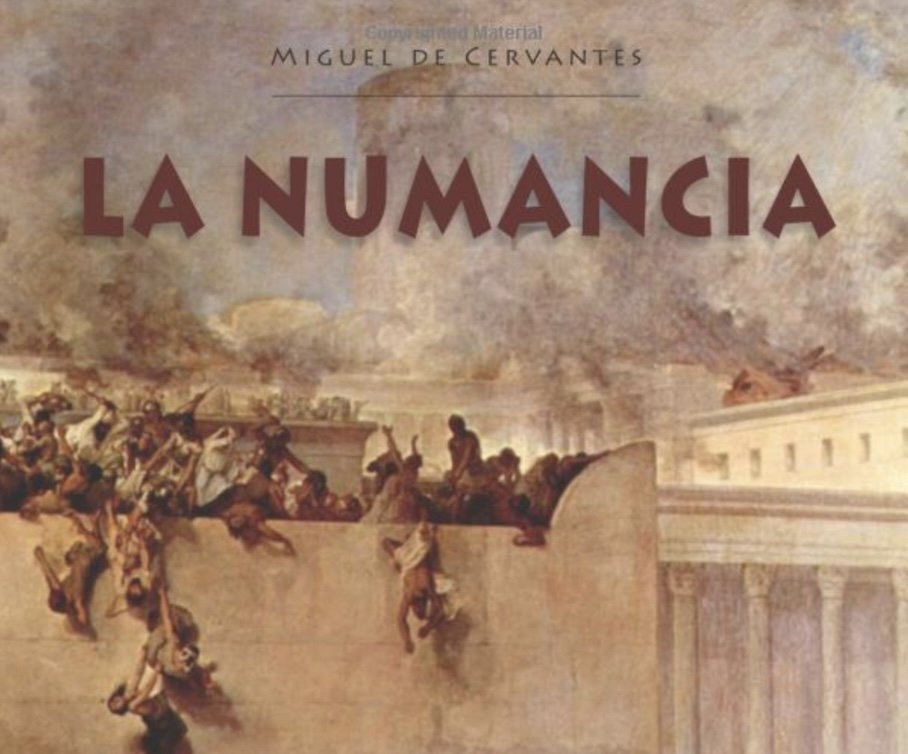Numancia Now! Anti-Imperialistic Media Hacks by Cervantes, Coppola and Zelinsky
I recently watched Apocalypse Now with my twenty-one-year-old son. I had seen it several times before, having taught the original movie in the 1990s, so it was not hard to pick out the scenes added to the Redux version. It was much harder to explain to my son what the movie means in 2022. It seemed more straightforward in 1995, when the Iran-Contra affair was still pretty fresh, and Latin American culture courses were focusing on the geopolitical and economic intricacies of Dependency theory and the political and human devastation wrought in Argentina, Chile, El Salvador, etc. by the US’s experiments with Chicago School economics backed by the CIA. Watching Francis Ford Coppola’s masterpiece while Vladimir Putin’s Russia attempts to isolate, bomb, and starve Ukraine into submission provides an alternative, equally urgent frame through which to make sense of the film. Rather than focusing on the US, one is now compelled to think about imperialism in general and the media through which we are viewing it—obsessively if one desires to do so. And our current media-saturated context led me straight to Cervantes’s La Numancia. I found myself comparing Colonel Kurtz’s cognitive swings between his laser-sharp understanding of war tactics and the insane and unconscious brutality of imperialist reasoning with Scipio’s equally catastrophic marriage of reason and bestiality where the Numantines are concerned. In both cases the exhibition of the hubris and inhumanity at the heart of imperialist wars fought far from home embodies Paolo Freire’s algorithm that the dehumanization of the colonized other leads directly to one’s own dehumanization.
In rereading La Numancia, the scene that hit me the hardest was Lira’s and Marandro’s pathetic dialogue, when Lira is dying of hunger and Marandro plans his suicide mission to steal food from the Romans. Although written almost five hundred years ago, Cervantes’s words mimic the words of survivors of the siege of Maruipol as well as modern explanations of siege warfare. According to Mouna Khaity, a health and gender researcher who lived through a siege in the Syrian war, “Depriving a residential area of food while bombarding serves not only to flush out combatants, but to communicate to everyone trapped inside…you are not an equal human to me. You don’t deserve to eat, drink, have medicine or even breath” (NYT article from March 29, 2022). Scipio’s characterization of the Numantines as beasts and animals portends Putin’s description of the Ukrainian leaders as neo-nazis and criminals.
Unlike current news reports, however, Cervantes’s play delves into broader definitions of humanity and ways of breaking through the violent dehumanization of the siege mentality. ‘Lira’ is Spanish for lyre, and by naming his tragic female character after a musical instrument and lyrical poetry Cervantes shows us how war starves music and poetry and converts gifts of love into suicide pacts. In the desperate case of the Numantines, love of country leads to the burning of all their beautiful things and a collective suicide in order to avoid what they understand as a fate worse than death: submission to an empire that seeks to convert them into slaves. There are no victories here, no justice, no historical destiny.
Returning to Apocalypse Now, although it doesn’t seem possible, Coppola’s film is bleaker than La Numancia, since the military-industrial complex stamps out beauty before the story even begins, all of humanity having been systematically reduced to exchange value. But it is here, in Coppola’s humanistic vacuum, where Cervantes’s art asserts its power by reminding us that beauty, poetry, and music are what define us as humans, even as imperialism converts us into obscene machines, conqueror and conquered alike.
So, it is all the more relevant that Ukrainian President Volodymyr Zelensky is himself an artist, and a master of media manipulation. Who else other than an artist, a comedian at that, would be able to combat Putin’s vengeful inquisitions at home and disinformation abroad with such guile and pathos? Or aware that he must saturate us with constant narratives of the horrors going on in Ukraine and insistent pleas for aid in order to combat our current culture of historical forgetfulness. There may be a myriad of reasons why imperialism and authoritarianism (Russian and otherwise) are still with us, and why they’ve been gathering steam in the 21st century, but one of those reasons is arguably the amnesic drive of our attention-grabbing, trivializing, obscene information environment, whose febrile sensationalist framing of the world doesn’t have time for inconvenient memories. In this environment, art (at least the kind of art I’ve been discussing here) takes on a renewed urgency as a vital mnemonic device.
References:
Apocalypse Now Redux. Dir. Francis Ford Coppola. Perf. Marlon Brando, Martin Sheen. American Zoetrope, 2001.
Cervantes, Miguel de. Numancia. Ed. Robert Marast. Madrid: Cátedra, 1984.
Gopnik, Adam. “Volodymyr’s Comedic Courage.” The New Yorker. March 13, 2022.
Hopkins, Valerie, Ben Hubbard, and Gina Kolata. “How Russia Is Using Ukranians’ Hunger as a Weapon of War.” New York Times, March 29, 2022.




